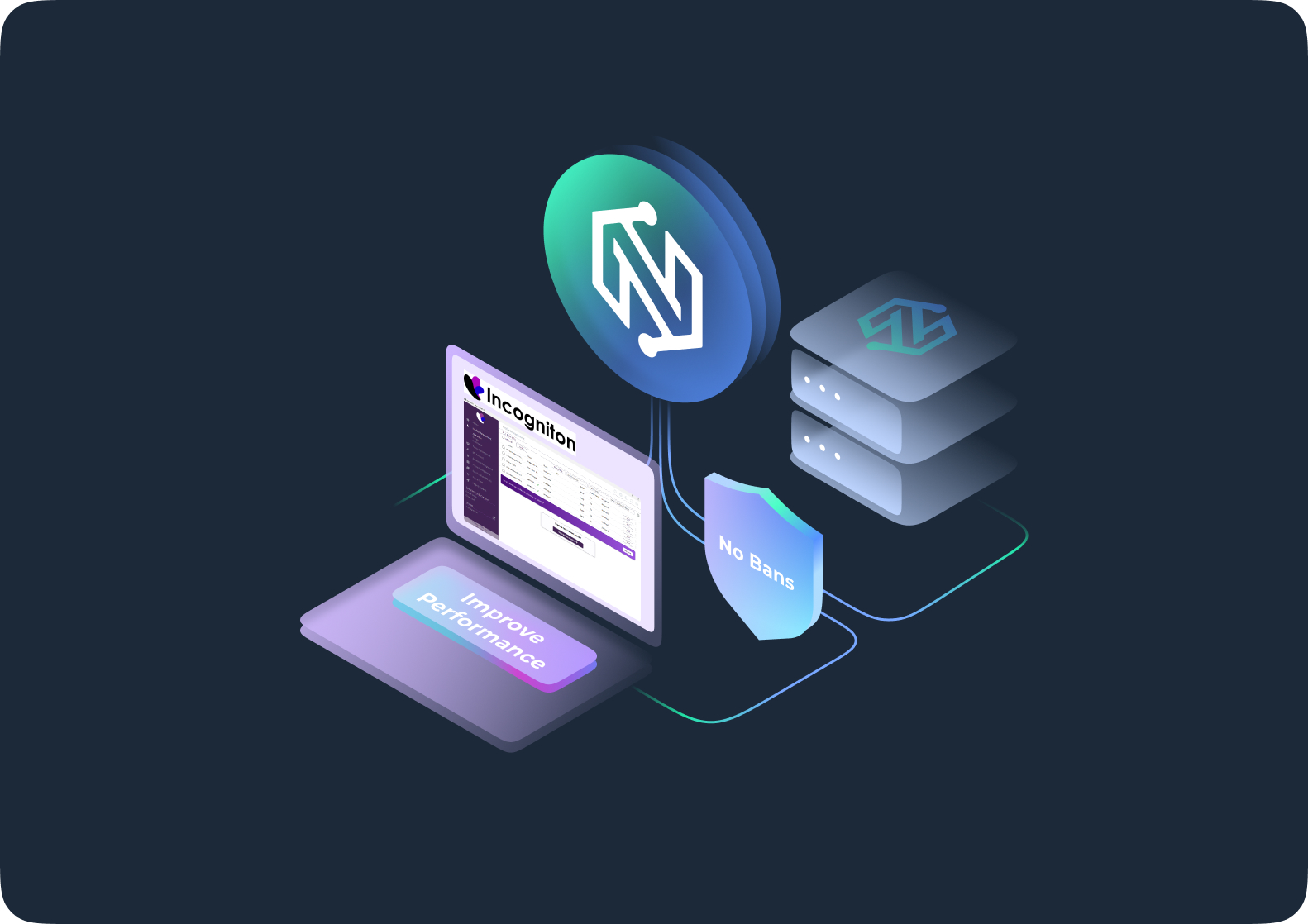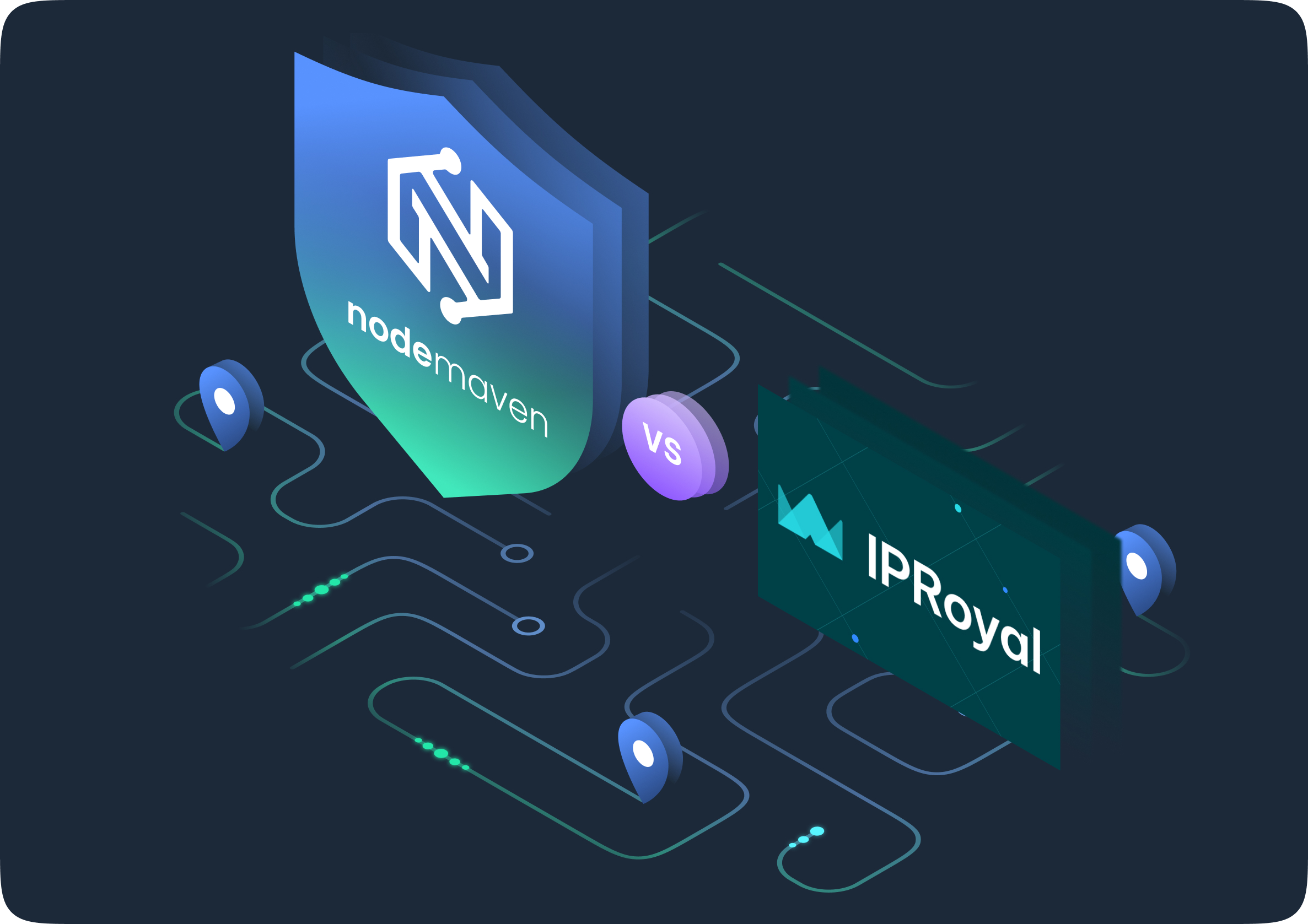In today’s interconnected world, IP bans can disrupt your online activities, whether you’re managing accounts, accessing geo-restricted content, or gathering data for your business.
Reflecting this growing concern, the demand for proxy services has surged by over 106% in the past year, highlighting the increasing need in proxies to maintain online accessibility.
Understanding the mechanics of IP bans and how to bypass them effectively is essential for uninterrupted access to your online goals.
This guide delves deep into IP bans, explores effective methods to bypass IP bans, and provides actionable best practices for avoiding them in the future. Let’s get started.
Understanding IP Bans
IP bans are among the most common ways websites restrict access to users or devices that violate their rules. To bypass IP bans, it’s crucial to first understand how they work and why they’re enforced.
What Is an IP Ban?
An IP ban occurs when a website or online platform blocks a specific IP address from accessing its servers. This ban can result from a variety of reasons, including suspicious activity, policy violations, or simply exceeding usage limits.
When your IP address is banned, the website effectively identifies your connection as unwanted or harmful, rendering you unable to access its services. These bans can range from temporary disruptions to long-term restrictions, depending on the severity of the violation.
Types of IP Bans
IP bans can vary in scope and implementation:
- Temporary bans: These bans block access for a set period, often due to minor violations or excessive requests within a short time.
- Permanent bans: Reserved for severe or repeated violations, permanent bans block access indefinitely.
- Geo-based bans: These restrict access based on the user’s geographic location, often implemented to enforce regional restrictions.
- Dynamic bans: Systems that dynamically block specific IPs based on behavior, such as frequent login attempts or unusual traffic patterns.
By identifying the type of IP ban you’re facing, you can choose the most effective method to bypass it.
Common Methods to Bypass IP Bans
Once your IP address is banned, you have several techniques at your disposal to regain access. Let’s explore the most reliable methods.
Using a Proxy Server
Proxies act as intermediaries between your device and the internet, routing your requests through a different IP address.
Why It Works:
Proxies mask your real IP, replacing it with a new one. By using residential proxies, especially rotating ones, you can appear as a legitimate user accessing the platform from a real device.
Best Use Cases:
- Managing multiple accounts on social media or e-commerce platforms.
- Accessing geo-restricted content.
- Conducting web scraping without triggering detection mechanisms.
Employing a VPN
A Virtual Private Network (VPN) encrypts your internet traffic and reroutes it through a server in a different location.
Why It Works:
VPNs change your IP address and encrypt your data, making it harder for websites to detect and block your connection, thus make it easier to bypass IP bans.
Limitations:
VPNs may not offer the same level of IP diversity as proxies, and their shared IPs can be flagged on platforms with strict anti-fraud measures.
Resetting Your IP Address
You can reset your IP address by restarting your router or contacting your Internet Service Provider (ISP).
Why It Works:
For users with dynamic IPs, resetting the connection assigns a new IP address, bypassing the ban.
Limitations:
This method is ineffective for static IPs or if the new IP falls within a banned range.
Tor Browser
The Tor network anonymizes your internet activity by routing it through a series of volunteer-operated nodes.
Why It Works:
Tor hides your real IP address and provides a different IP from its network.
Limitations:
Tor can be slow, and many websites block traffic from known Tor exit nodes.
Mobile Data Hotspot
Switching to mobile data and using it as a hotspot can provide you with a new IP address.
Why It Works:
Mobile networks assign dynamic IPs that change frequently, making it an easy way to bypass bans.
Limitations:
This method may not work for large-scale operations or activities requiring high bandwidth.
Combining multiple methods, such as proxies with VPNs, can also enhance your success rate in bypassing bans, particularly for complex scenarios.
Best Practices for Avoiding Future IP Bans
Prevention is always better than remediation. Adopting best practices can help you minimize the chances of facing IP bans.
Mimicking Real User Behavior
Websites have increasingly sophisticated systems to detect unusual patterns, making it essential to emulate the activity of a genuine user. This goes beyond avoiding high request volumes – it involves thinking like a real person browsing the internet.
Tips:
- Avoid sending too many requests in a short period.
- Use natural browsing patterns, including pauses and random navigation.
- Avoid repetitive actions that trigger detection algorithms.
Using High-Quality Proxies
The quality of your proxies plays a crucial role in avoiding bans. Premium quality proxies are built to minimize detection, granting a safer online experience.
Why It Helps:
- Residential proxies emulate real user behavior by using IPs tied to legitimate ISPs.
- Rotating residential proxies offer dynamic IP changes, making it harder for websites to detect suspicious patterns.
Avoiding Repeated Violations
Understanding the rules of the platform you’re interacting with is paramount. Repeated violations not only increase your chances of being banned but can also make future re-entries more difficult.
Tips:
- Stay updated on the platform’s terms of service.
- Avoid using automation tools excessively or violating content guidelines.
Use Cases Where Bypassing IP Bans Is Important
Understanding the importance of bypassing IP bans is critical in the following scenarios:
- E-commerce operations: Managing multiple seller accounts on platforms like eBay or Amazon often requires proxies to avoid bans.
- Digital marketing: Marketers rely on proxies to access localized data and make sure ad placements are accurate.
- Web scraping: Businesses scraping data from websites for competitive analysis need to avoid bans to secure consistent data collection.
- Gaming and streaming: Gamers and streamers bypass geo-restrictions and latency issues using proxies or VPNs.
- Social media management: Agencies handling multiple client accounts need solutions like residential proxies to manage accounts safely.
Maximize Your Success with NodeMaven’s Residential Proxies
NodeMaven offers state-of-the-art residential proxy solutions tailored to your needs:
- Rotating residential proxies: Automatically switch IPs for uninterrupted operations and avoid detection.
- High anonymity levels: Make sure your activities remain undetected with proxies that mimic real user behavior.
- ISP-level targeting: Access proxies tied to specific regions or ISPs for geo-sensitive tasks.
- Scalability for all needs: From small-scale operations to enterprise-level tasks, NodeMaven provides scalable solutions.
- Reliable customer support: Get expert guidance and support 24/7 to maximize the effectiveness of your proxy setup.
Choose NodeMaven for unmatched reliability, performance, and anonymity.


